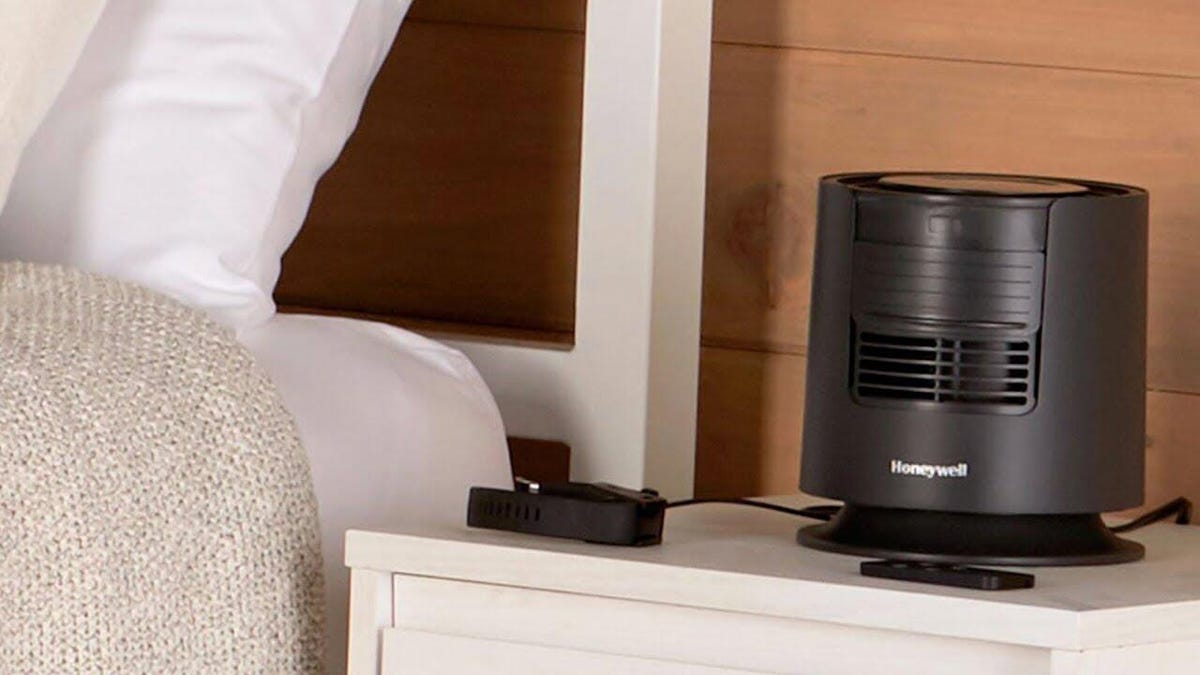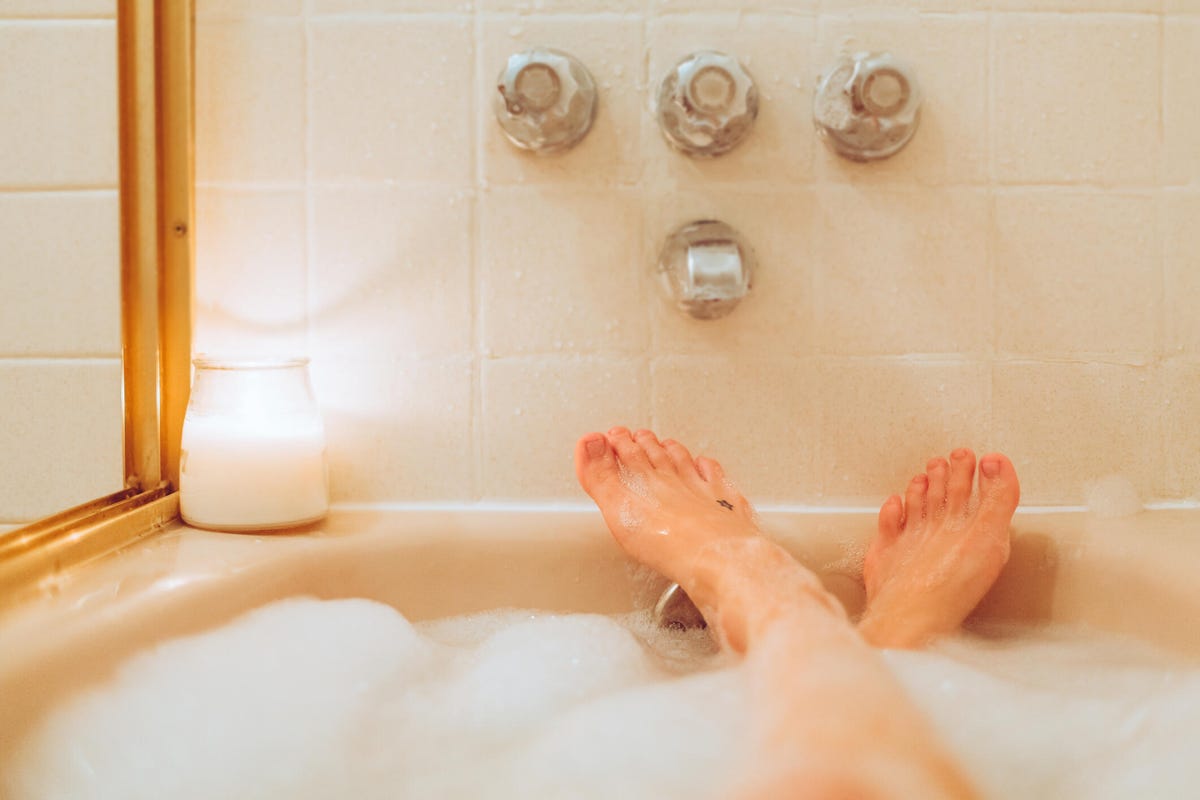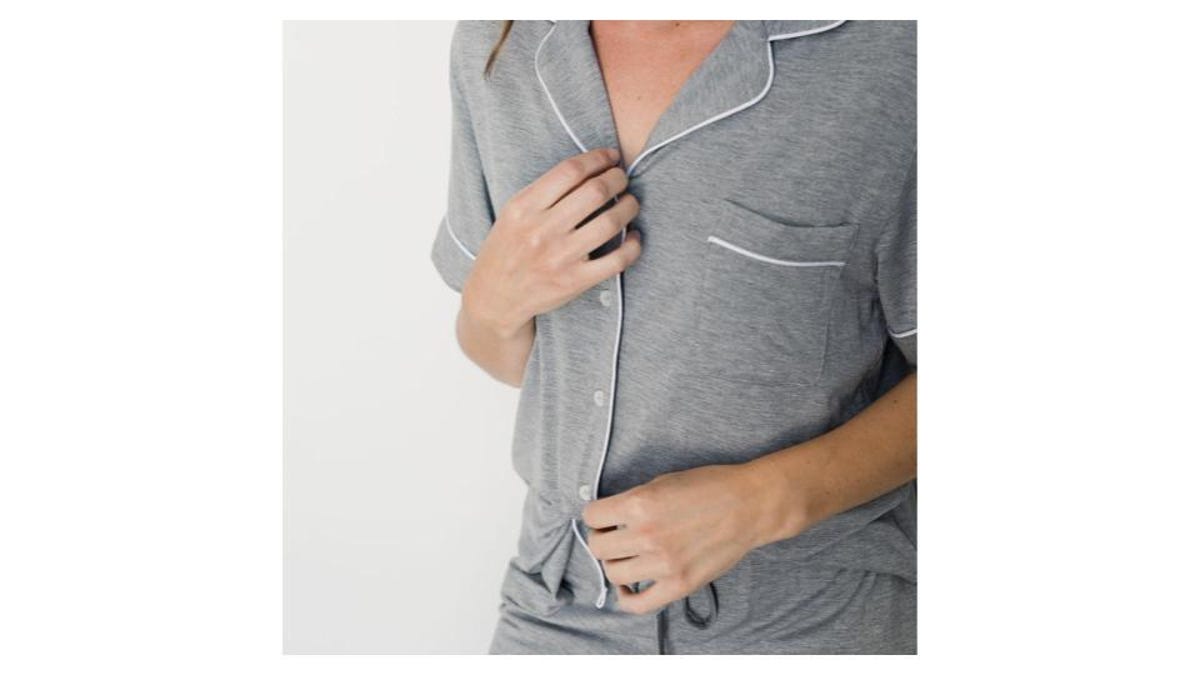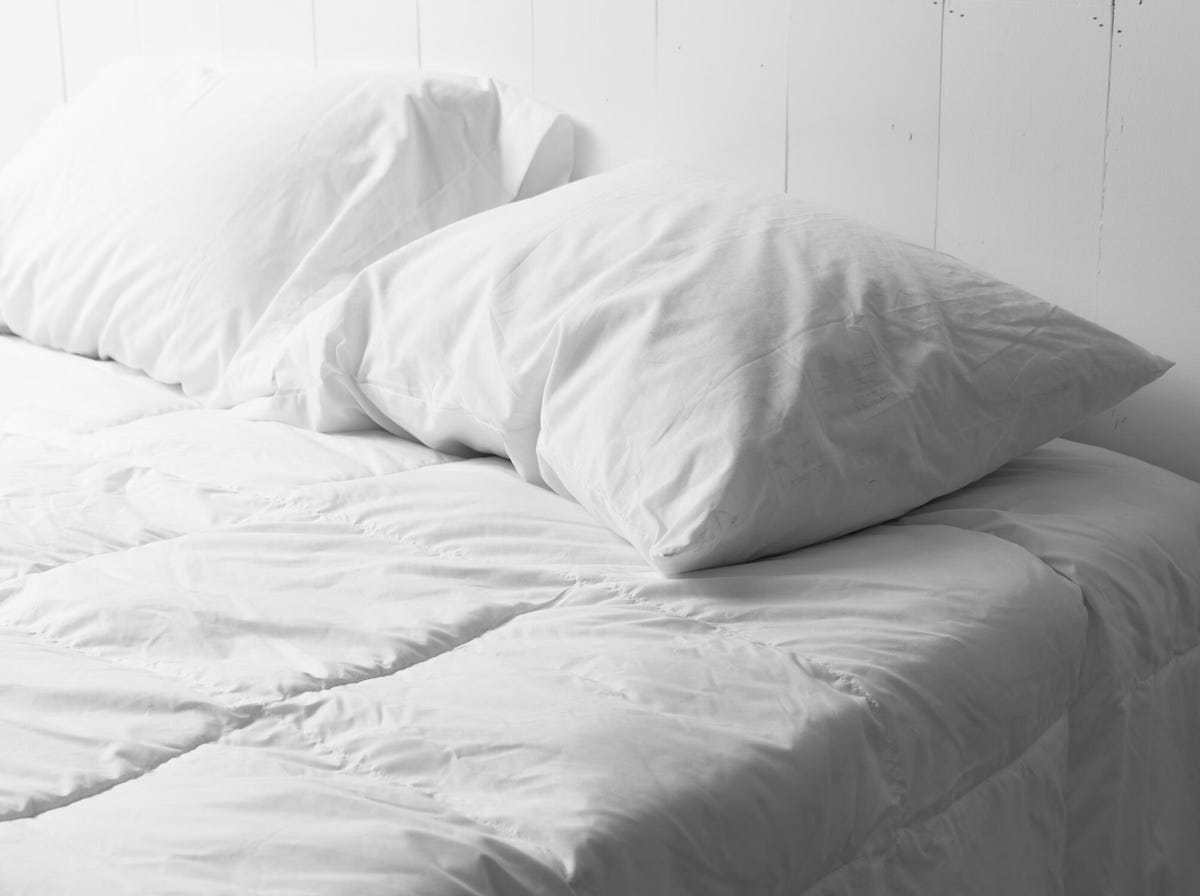As heatwaves and extreme temperatures continue, you might have a hard time cooling off at night. Rising temperatures can interfere with the body’s natural thermoregulation progress and make it feel impossible to get comfortable enough to go to sleep.

Don’t worry; you’re not doomed to sweaty sheets and a sky-high energy bill. There are things you can do (outside of your air conditioning) to beat the heat. Try these 12 recommendations to kick the night sweats and sleep through the night. Plus, how to sleep cooler when you share a bed with a human furnace.
Read also: How to Regulate Your Circadian Rhythm for Better Sleep
1. Talk to your doctor about night sweats
First things first: Rule out an underlying health condition. Night sweats can happen in response to many medical conditions, including anxiety disorders, neuropathy, hyperthyroidism, Hodgkin’s lymphoma and tuberculosis, according to the Mayo Clinic.
Certain medications, such as those for diabetes and depression, may also cause night sweats. If you’re waking up hot and sweaty every night, it’s worth looking into with your doctor, regardless of the weather.
Read more: How to Stop Night Sweats
2. Add a window unit or box fan
This probably seems obvious but it works. If you don’t have central AC in your home, consider buying a window unit to keep you cool at night. This costs far less than installing a central AC unit and it saves on energy costs because you’re only cooling one room. Alternatively, a box fan in the window can push hot air out and circulate cooler air.
3. Try a floor fan or mini nightstand fan
No space for a window unit or box fan? Many companies make impressively powerful floor fans and mini fans these days. The Honeywell QuietSet Whole Room Tower Fan has served me well, as has the Honeywell Dreamweaver Sleep Fan, which doubles as a white noise machine.
4. Use fans to create a cross-breeze
Speaking of fans, grab two while you’re at the store. Placing two floor fans facing each other on opposite sides of your room creates a cross-breeze, keeping you cool all night long.

This small Honeywell fan is surprisingly powerful.
5. Take a hot bath a couple of hours before bed
Your body temperature fluctuates in a cycle. Every evening, as the sun begins to set and your eyes perceive darkness, your body starts to produce melatonin and triggers your brain to prepare for sleep. At the same time, your core body temperature begins to dip and continues to drop throughout your first two stages of sleep.
Taking a hot bath 1 to 2 hours before bed can simulate this natural process and promote restful sleep. When you sleep, your body temperature hovers around 2 degrees lower than its daytime temperature before gradually rising back to normal levels shortly before you wake up.

It might sound like the opposite of what you want to do, but it just might work.
6. Try bedding made from natural fibers
Synthetic sheets tend to cost less than natural sheets, but investing in some natural cotton, linen, silk or bamboo bed sheets might be your ticket to staying cooler while you sleep. These fabrics promote breathability, and as a bonus, they don’t put off volatile organic compounds like many synthetic fabrics do (we could all use fewer VOCs in our homes).
7. Choose natural fibers and loose fits for pajamas
If you don’t feel comfortable sleeping nude, be smart about your pajamas. Just as bedding made from natural fibers can help keep you cool, so can clothing. Loose-fitting cotton, silk or bamboo-based pajamas offer more breathability than pajamas made from synthetic fibers.

Pajamas made from natural fibers, like this bamboo fabric set from Cozy Earth, might help you stay cooler at night.
8. Use blackout or thermal curtains during the day
It’s always nice to let sunlight into your home during the day, especially during the winter, when days are short and many people struggle with seasonal affective disorder. Keeping the curtains — specifically blackout or thermal curtains — drawn in your bedroom during the day can keep your room cooler so it’s ready to sleep in at night.
9. Don’t run electronics in your bedroom
Electronics such as televisions, radios and video game consoles emit heat when they run. Avoid using electronics in your bedroom at night if you really struggle to stay cool while you sleep.
Read more: Dim or Kill Your Devices’ Bright LED Lights
10. Freeze your pillowcases and sheets
This sounds strange, but it really works — I can attest to this as someone who lived in California through several heat waves with no AC. This won’t keep you cool all night long, but it will keep you cool for 30 minutes to an hour, giving you time to fall into a deep slumber.
Simply stick your pillowcases and bedsheets in your freezer for a couple of hours before bed. Put them back on your bed and snuggle into your own personal igloo.

Pop your pillowcase in the freezer for a few hours for bedtime bliss.
11. Turn down your thermostat
This probably seems obvious, but many people are hesitant to turn the thermostat down past a certain temperature. Turning your home into an arctic tundra via air conditioning jacks up your electricity bill, after all. If you feel like you’ve tried everything and you still wake up a sweaty mess, you might just need to nudge your nighttime temp down a few notches.
According to the National Sleep Foundation, most experts agree that 65 degrees Fahrenheit (18.3 degrees Celsius) is the ideal sleeping temperature because it helps your body maintain its natural core temperature at night. The US Department of Energy suggests that the ideal temperature for your thermostat this summer is 82 F when sleeping and 85 F when out of the house to ensure maximum energy savings. So, be prepared to spend a little extra this summer if you’re changing the thermostat each night.
Here Are 23 Ways to Save On Your Electric Bills Right Now
12. Turn to tech
OK, what if none of the above have worked for you in the past? There are plenty of products out there specifically designed to help people avoid the dreaded night sweats. The products below all use some sort of cooling technology that’s supposed to promote uninterrupted rest for hot sleepers.
The Eight Sleep Pod 3 mattress cover is a solution for hot sleepers and heat waves. It tracks your health vitals and sleep, reports your sleep quality and adjusts the temperature to keep you cool and comfortable throughout the night. Each side of the bed is completely customizable.
Read our review on the Eight Sleep Pod.
This mattress topper uses Reactex technology, which pulls heat away from your body and channels it through memory foam cubes and fiber fill.
The ChiliBlanket features hydroponic cooling. The control unit cools the water and sends it through the channels within the weighted blanket, so you can get all the anxiety-reducing comfort of a weighted blanket without feeling like you’re drowning in sweat.
Purple products feature a gel gridded design that keeps air moving through internal channels, preventing hot air from building up beneath your body.
The BedJet system works with existing bedding — just position the fan arm beneath your fitted sheet for near-instant cooling.




















+ There are no comments
Add yours